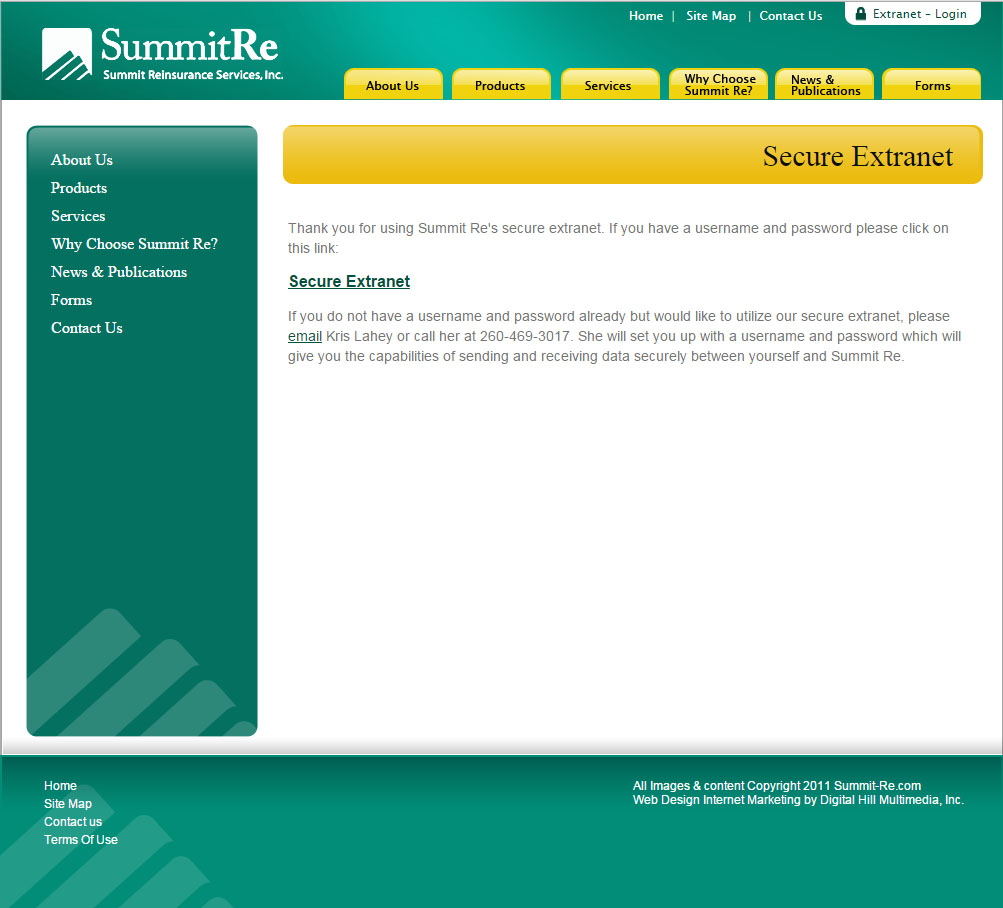This article is part of a series of case studies—real stories of how managed care companies increased profits by using Summit Re’s resources to increase sales, decrease expenses, and manage claims. What do you do when your customers repeatedly request coverage which you are prevented from offering? This client turned to Summit Re for the solution.
The conflict
A large, regional HMO client had received repeated requests from its insured employer groups to provide coverage for family planning services. Because the health plan was owned by a Catholic hospital system, it was not able to accommodate these requests through its traditional HMO products. The health plan contacted Summit Re for assistance in solving this ongoing problem.
The resolution
Summit Re has a relationship with Advisors, LLC, a Michigan-based company that provides specialized group insurance consulting, product management, provider contracting, and network development services. Summit Re knew that Advisors, LLC had an arrangement with Unified Life Insurance Company (licensed in 45 states and the District of Columbia and rated B++ by A.M. Best) to provide independent, supplemental group insurance policies to selected Catholic-sponsored HMOs. Unified Life's Family Planning product and the Unified Life/HMO business arrangement are specifically designed to provide HMOs with an effective means to meet client demands for family planning services and still remain compliant with the ethical directives of the Catholic church and state insurance laws.
Flexible components
The flexible package of covered services operates with HMO, POS, or PPO plan designs. These services may be covered in any combination to meet individual employer group needs:
- Artificial insemination services
- Tubal ligations
- Vasectomies
- Pregnancy terminations
- Oral contraceptives
- Contraceptive devices
Direct administration
The Unified Life Family Planning product is issued directly to each employer group. As a consequence, the I.D. card of the Catholic sponsored HMO is not used at the pharmacy, claims for drugs and services are not the HMO's financial responsibility, provider services are provided through independent Unified Life provider contracts, and the HMO's filed certificate of coverage and rates can specifically exclude family planning services. Under the Unified Life approach, the HMO provides only limited cooperation by assisting the client with Unified Life set-up arrangements, providing monthly eligibility files and collecting premium. Often, the last service can be facilitated by a bank-trust arrangement.
All appropriate policies, benefit schedules, rates and forms are filed for each HMO arrangement with the state authorities by Unified Life. Each covered group is issued a Unified Life policy and all eligible members are given a benefit schedule and plan administrative information. Unified Life contracts independently of the HMO with a prescription benefit manager for contraceptive prescription services and medical providers for all other plan services.
Simple process
The Family Planning product operates very simply with no special actions required of employer groups and minimal member involvement. A brief summary of the product's operation follows:
- At the point of group installation, the HMO transmits the eligible membership data to Unified Life.
- Unified Life provides benefit notices to all covered members, which are delivered along with the HMO's standard member material. The benefit notice informs members of the benefit services available, the list of participating providers and Unified Life's toll-free telephone number to be used for all Family Planning benefit inquiries.
- Covered members are encouraged to use Unified Life's network of participating providers for the delivery of covered services. If members use other providers, Unified Life will pay the provider up to the level of Unified Life's fee schedule. No referral from the primary care physician or plan service authorization is needed by the member.
- Covered members using contraceptives for birth control purposes are given a special prescription drug ID card which operates like a standard ID card at the pharmacy, but only for contraceptives.
- Medical service providers directly bill Unified Life and are typically paid within two weeks of receipt.
- Unified Life delivers a group insurance policy to each employer group.
- Unified Life receives monthly electronic eligibility updates from the HMO.
- As a service to the employer group, the HMO collects a combined (HMO and Unified Life) premium from all covered groups and wire transfers the Family Planning product premium to Unified Life monthly. Some clients prefer to use their banks for premium receipt and dispersal functions.
Epilogue
Summit Re facilitated a meeting between the health plan and Advisors, LLC. The health plan and Advisors LLC worked out a plan that was specifically tailored for its marketplace. The program was implemented with ease and has been operating successfully.



